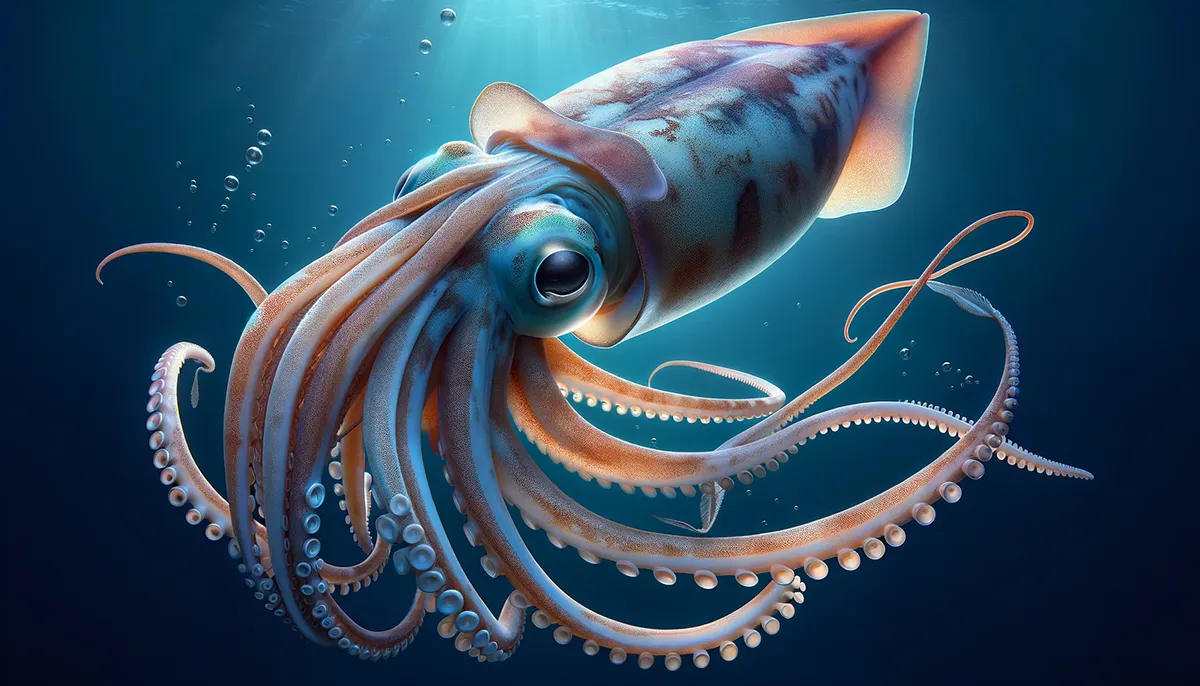G’day, mates! Let’s chat about the thrill and the bit of a challenge that comes with squid fishing. It’s not just about tossing your line out and hoping for the best; there’s an art to it, especially when you’re keen on bagging some squid. Now, if you’re wondering about the best time for squid fishing, you’re already on the right track. Timing is everything. Squid are clever critters, and they’re not just going to jump onto your hook any old time of day. Early morning or late at night, when the water’s calm and the world’s a bit quiet, that’s when you’ve got your best shot at success.
And hey, while we’re on the subject of getting it right, you can’t go past our ReelBoss fishing lines. Over at ReelBoss, we’ve got the gear that’ll make your squid fishing adventure a cracker. Our lines are top-notch, designed to help you cast further, reel in smoothly, and, most importantly, increase your chances of a successful catch. So, whether you’re a seasoned pro or just starting, remember: that the right time and the right gear make all the difference. Let’s make your next squid fishing trip a ripper, eh?
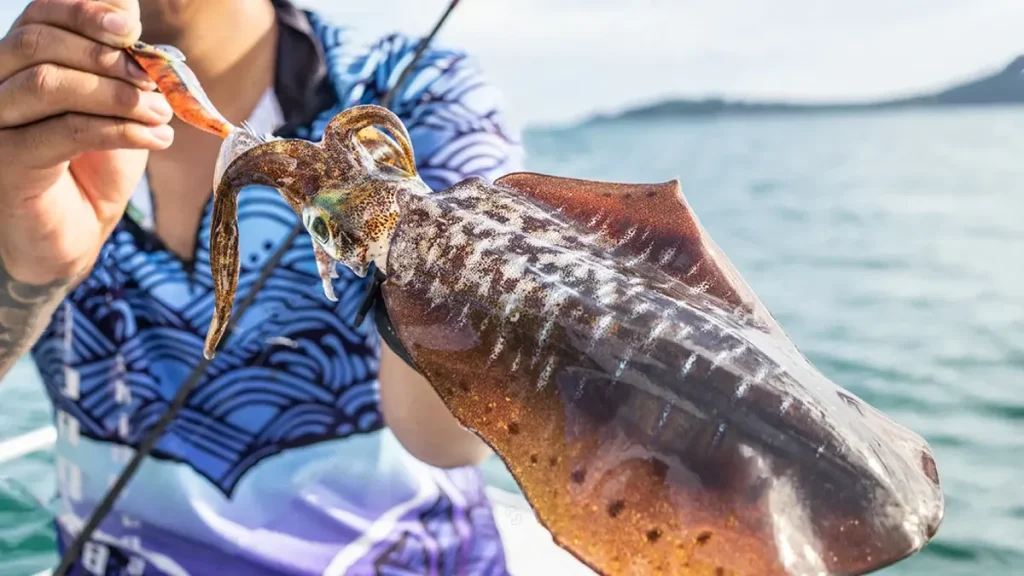
Getting Started with Squid Fishing
Alright, now that you’re all fired up about fishing for squid, let’s dive into the nitty-gritty – the gear you’ll need to start your adventure. First off, you’re gonna want a solid fishing rod. Not just any old stick will do; you need something that’s got the backbone to handle a feisty squid but enough finesse to feel the slightest nibble. And let’s talk braided lines – these beauties are a must-have for any squid angler. They’re strong and durable, and give you that sensitivity to feel when a squid’s having a go at your jig.
Now, mastering the art of reel in the slack line is crucial. Squid can be subtle, and if there’s too much slack, you might miss the action. It’s all about keeping a tight line and being ready to spring into action. Remember, the right gear can make a huge difference in your fishing for squid success. So, gear up, stay keen, and let’s catch some squid!
The Best Time and Conditions for Squid Fishing
So, you’ve got your gear sorted and you’re itching to hit the water. But hold your horses! Knowing the best time for squid fishing is key to filling your bucket. Squids are picky critters, and they love themselves in a specific kind of setting. It’s all about the water temperatures and the depth. Generally, they fancy cooler waters, so early morning or late at night, when the sun’s not blazing down, is prime time for a squid hunt.
And don’t overlook the importance of shallow water. These areas are like a squid magnet, especially around weed beds and rocky outcrops. It’s here you’ll want to perfect casting your squid jig. A well-placed jig in these hotspots during peak times? Mate, you’re practically ringing the dinner bell for them. So, remember, timing is everything, and getting it right means you’re halfway there to a successful catch. Let’s get out there and make the most of it!
Choosing Your Gear
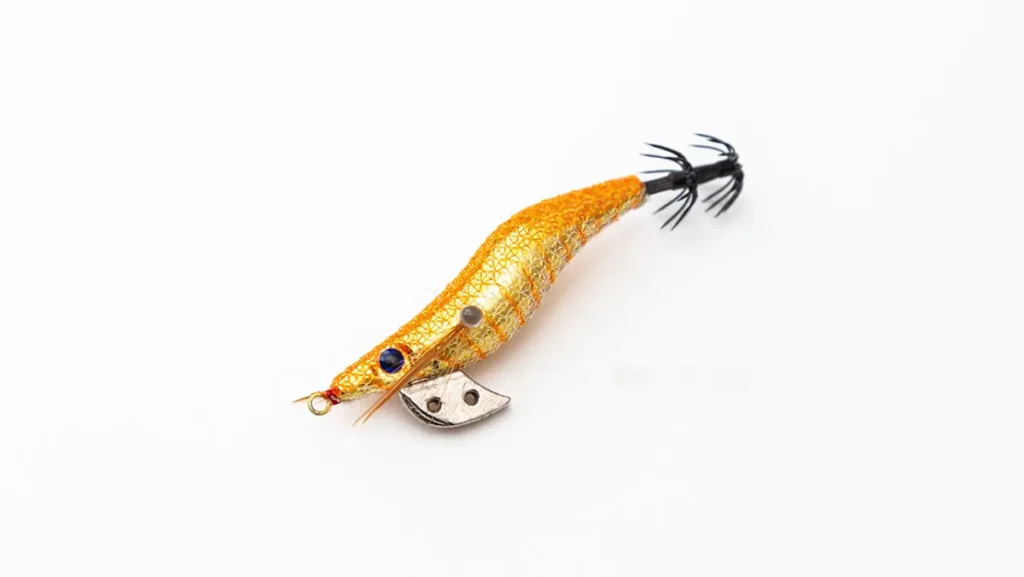
Righto, let’s chat about choosing the perfect arsenal for your squid fishing adventure. When it comes to squid fishing lures and squid jigs, it’s not just a matter of picking the shiniest one in the shop. The jig colour plays a massive role in your success. Bright colours work a treat in clear water, while in murkier depths, you might want to switch to darker shades that create a silhouette. Squids are curious creatures, and the right colour can be just the ticket to pique their interest.
Now, onto the art of the casting distance. It’s not just about chucking your line as far as it can go; it’s about precision and making sure your jig hits the sweet spot where the squids are lurking. This often means getting your jig to hit the bottom and then working it back in a way that mimics their natural prey. A good cast can be the difference between a squid ignoring your jig or latching onto it with gusto.
So, when you’re gearing up, remember: the right squid jigs, a thoughtful choice in jig colour, and mastering your casting distance are all crucial steps to becoming a squid-catching legend. Let’s get those lines in the water and show those squid what we’re made of!
Techniques for Successful Squid Fishing
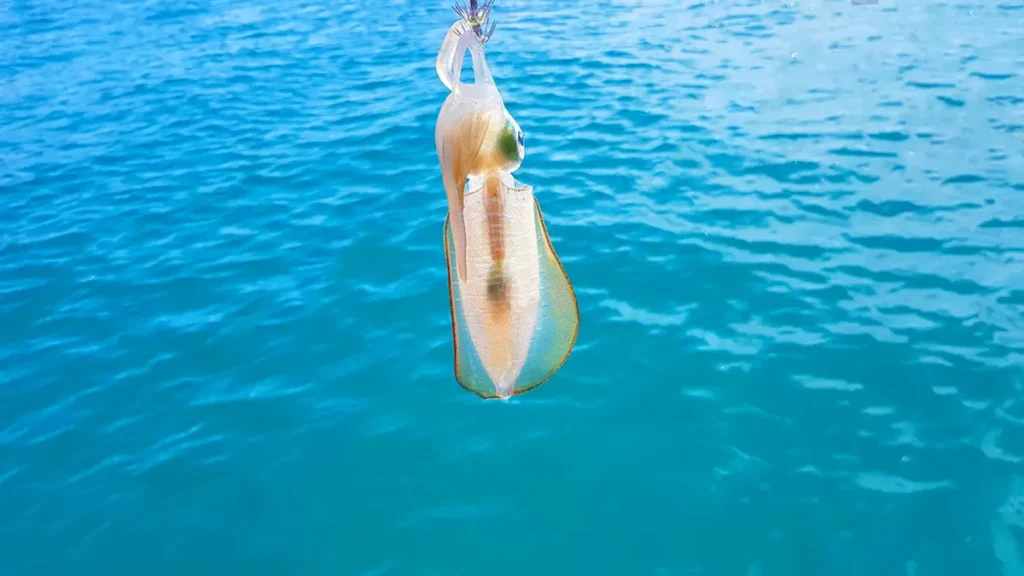
Alright, you’re kitted out with the right gear, and you’ve sussed out the best times and spots for a squid session. Now, let’s talk tactics to really ramp up your game. The cornerstone of squid success? Mastering casting your squid jig. It’s all about finesse and timing. Give it a good flick, ensuring you’re covering ground where these critters hang out. But here’s the clincher – once that jig’s in the water, you’ve gotta reel in the slack line. Keeping a tight line means you can feel even the gentlest of tugs, letting you react in a flash to hook that squid.
Now, for the land-based anglers among us, your style of fishing might differ a bit from those on boats. It’s about making the most of piers, jetties, and rocky shores. Use the terrain to your advantage, casting into those squid hotspots. And if it’s larger squid you’re after, patience and persistence are your best mates. Adapt your technique, maybe letting that jig sink a bit longer or twitching it more subtly to mimic the prey of these bigger beauties.
Remember, whether you’re off the land or casting from a boat, the principles remain the same. Keep that line tight, your jig dancing and your eyes peeled for the signs of a squid ready to strike. Let’s get out there and snag ourselves a squid or two, hey?
Advanced Squid Fishing Strategies
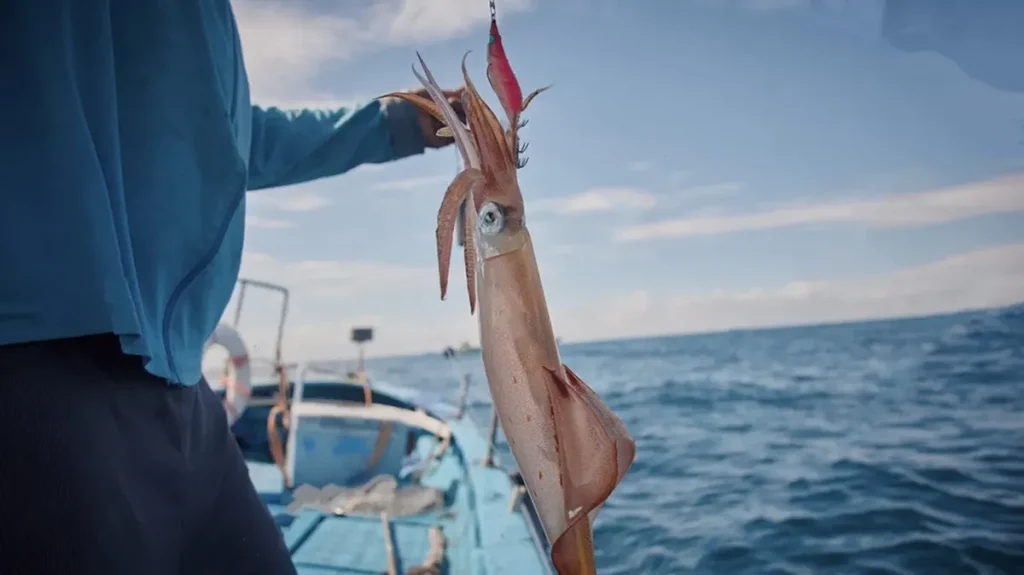
Right, let’s take it up a notch for those looking to refine their squid-chasing skills. When it comes to targeting squid like a pro, it’s not just about what you use, but how you use it. Your choice of squid fishing lures should be as sharp as your tactics, especially when considering water temperatures. Colder waters might have you opting for brighter, more vibrant lures to catch the eye, while warmer waters call for subtler shades.
But here’s a bit of insider knowledge: maximizing your casting distance can open up new territories and bring you into the path of unsuspecting squid. It’s not just chucking your line out far and wide; it’s about precision, making sure you’re hitting those deeper spots where the big fellas like to hang out. By fine-tuning your technique to ensure your jig not only reaches out far but also sinks to just the right depth, you’re setting the stage for a legendary catch. So, gear up, aim carefully, and let those lures do the talking. You’re not just fishing; you’re outsmarting the squid in their own game.
Releasing or Keeping Your Catch: Ethical Squid Fishing Practices
Now, let’s yarn about something close to our hearts: doing right by the squid we’re so keen on catching. Ethical squid fishing practices aren’t just good manners; they’re crucial for making sure there are plenty of these critters for future generations. When you’re out there, deciding whether to keep your catch squid or let it go, think about the big picture. Size regulations and catch limits are there for a reason – they help protect the young’uns and ensure the larger squid keep the population healthy.
For both land-based anglers and those casting off from boats, it’s essential to handle your catch with care. If you’re releasing, do it gently to minimize harm, keeping the squid in the water as much as possible. It’s about respect, mates. Respecting the rules, the squid, and the future of squid fishing. By following these guidelines, we contribute to a sustainable hobby that’ll keep us, and the squid, happy for years to come. Let’s keep the spirit of fair dinkum fishing alive!
Conclusion
And there you have it, mates – a solid intro into the world of squid fishing. We’ve covered the works: from gearing up with the right fishing rods and squid jigs to picking the perfect time and spot for your adventure. We’ve dived deep into the tactics that’ll help you reel in those clever squids, and we’ve touched on the importance of keeping our squiddy mates thriving for years to come.
Squid fishing is more than just a pastime; it’s a craft, a way to connect with the sea and its mysteries. For all you newbies out there, keen to get your lines wet, remember: every cast is a story, and every catch is a triumph. There’s a whole ocean teeming with a diverse range of squid waiting for you. So, grab your gear, respect the waters, and dive into the rewarding world of squid fishing. You’re in for a ripper of a time, I promise. Let’s keep our bays, oceans, and future generations brimming with squid. Happy fishing, folks!
